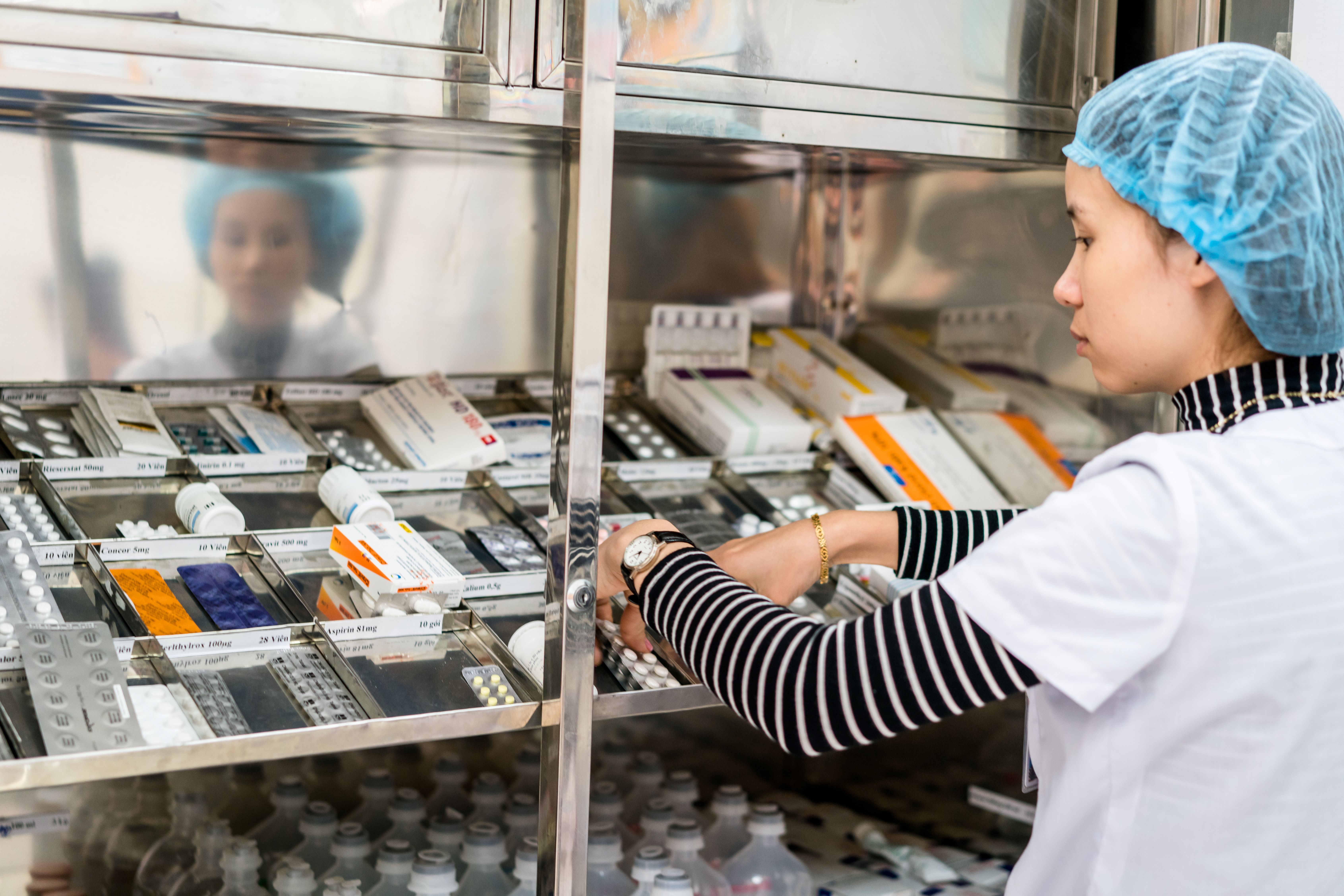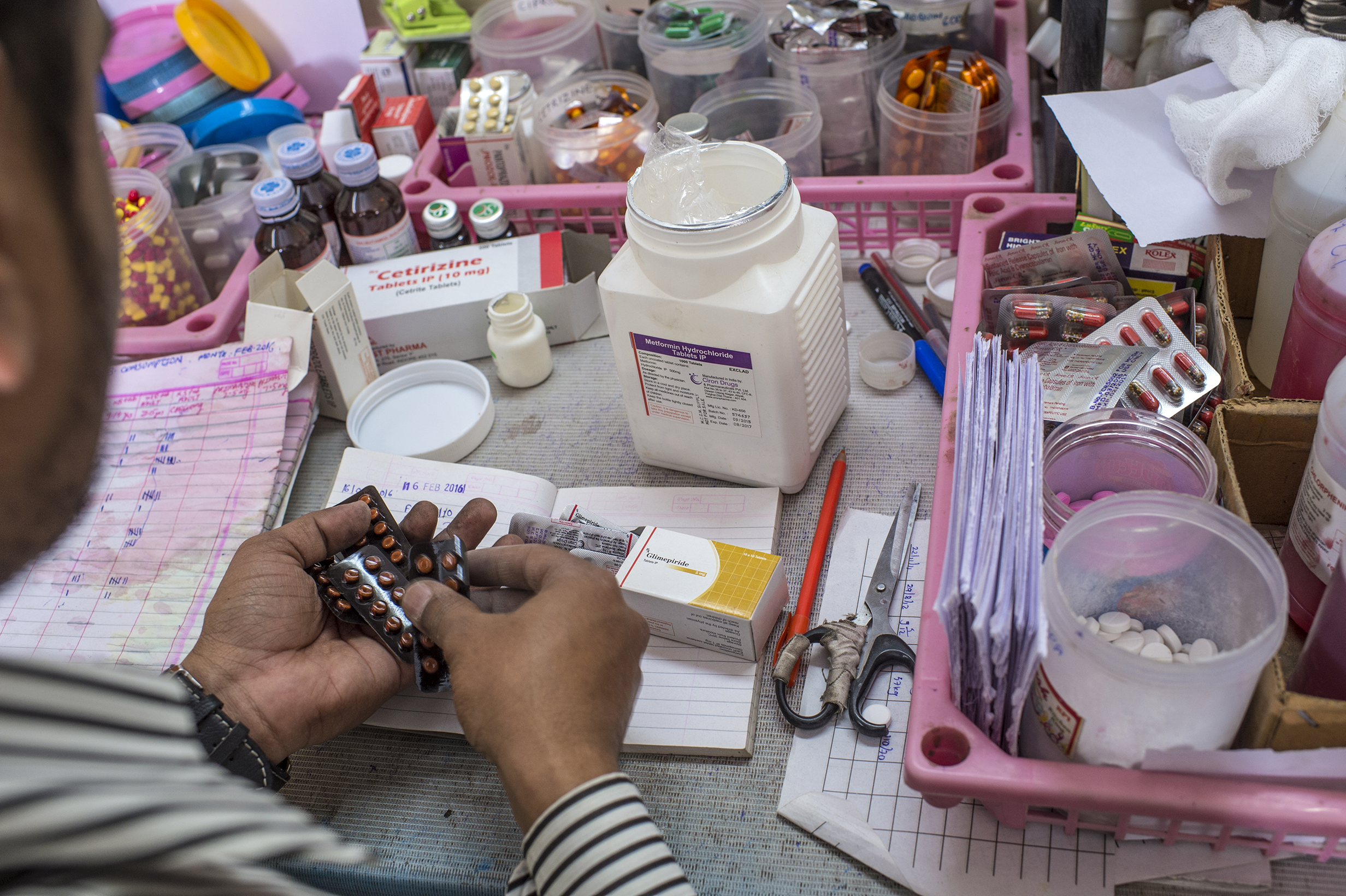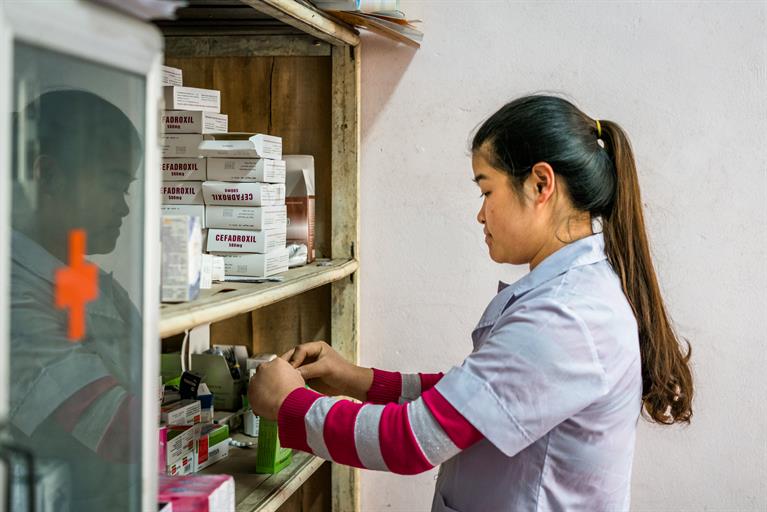
/access-to-medicines-and-health-products-adgo-(mha)/pharmacists-checking-medicines-stocks.tmb-768v.jpg?sfvrsn=3b0196be_1)
Access to medicines and health products
Universal health coverage can only be achieved when there is affordable access to safe, effective and quality medicines and health products.
Countries face a range of obstacles to achieving this, including rising prices for new medicines; shortages and stock outs of essential medicines, especially for noncommunicable diseases, and the growing problem of substandard and falsified medical products entering the global supply chain. Added to this, there are other challenges to ensuring that medicines are not only available, but are used appropriately. Antimicrobial resistance has become a worldwide problem largely due to overuse, and misuse of opioids has led to an addiction epidemic in some countries. Knowing where to tackle the problem is the first step. WHO works with Member States to identify what their priorities are on the road to achieving this universal access.
Areas of work
Regulation and Prequalification
Progress towards enhancing regulatory practices related to medical products around the world is supported by capacity building, promoting regulatory convergence and harmonization.

Universal Health Coverage Day
Annually 12 December
Highlights


School of INN

Medicine price information
News
All →Publications
All →/regulation-and-prequalification-(rpq)/local-production-and-assistance-(lpa)/capture-d--cran-2025-12-12-163434.tmb-144v.jpg?sfvrsn=1681a5c0_1)
Driving quality across the product lifecycle for medicines, vaccines, biotherapeutic products, and in...
Ensuring quality of the health product ensures its safety and efficacy. Manufacturers in low- and middle-income countries (LMICs) face challenges to...
Establishing quality specifications for medicines, vaccines and in vitro diagnostics: week of quality...
The Local Production and Assistance (LPA) Unit in the Innovation and Emerging Technologies Department (IET), Access to Medicines and Health Products Division...
Whether or not xenotransplantation should be done is beyond the scope of this paper. Therefore, this paper does not examine the important ethical issues...
This comprehensive document deals with the relevant WTO agreements and the way they may influence health and health policies. In undertaking this joint...


